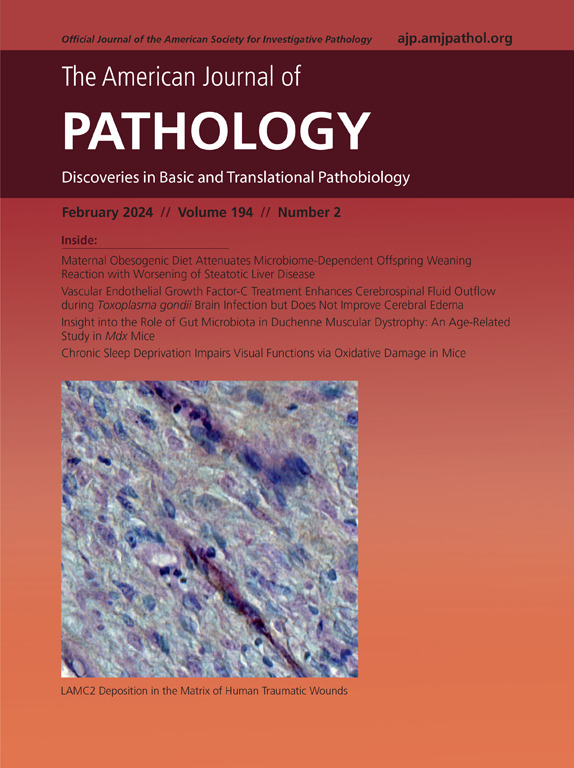肠道微生物群和胆汁酸相互作用:胆管癌发展、免疫抵抗和治疗的机制意义。
IF 4.7
2区 医学
Q1 PATHOLOGY
引用次数: 0
摘要
胆管癌是一种罕见但高度恶性的胆管上皮细胞癌,预后较差。CCA发生和发展的主要危险因素是胆汁淤积性肝病。原发性硬化性胆管炎和原发性胆道性胆管炎的主要特征是慢性胆汁淤积,即肝细胞向胆汁中分泌胆道脂质和代谢物的速度减慢,胆汁酸的肠肝循环(胆汁酸再循环)减慢,肠道微生物群失调,导致肠肝再循环和毒性次级胆汁酸增加。通过扰乱胆汁酸的肠肝循环和肠道微生物群的紊乱来改变血清和肝脏胆汁酸组成,然后激活一系列肝脏和癌细胞信号通路,促进CCA癌的发生和进展。本文将重点讨论胆汁酸和肠道微生物在CCA发病和进展中的机制作用。我们还将评估针对肠道微生物群和胆汁酸介导的信号通路的治疗潜力,以治疗和预防CCA。本文章由计算机程序翻译,如有差异,请以英文原文为准。
Gut Microbiome and Bile Acid Interactions
Cholangiocarcinoma (CCA) is a rare but highly malignant carcinoma of bile duct epithelial cells with a poor prognosis. The major risk factors of CCA carcinogenesis and progression are cholestatic liver diseases. The key feature of primary sclerosing cholangitis and primary biliary cholangitis is chronic cholestasis. It indicates a slowdown of hepatocyte secretion of biliary lipids and metabolites into bile as well as a slowdown of enterohepatic circulation (bile acid recirculation) of bile acids with dysbiosis of the gut microbiome. This leads to enterohepatic recirculation and an increase of toxic secondary bile acids. Alterations of serum and liver bile acid compositions via the disturbed enterohepatic circulation of bile acids and the disturbance of the gut microbiome then activate a series of hepatic and cancer cell signaling pathways that promote CCA carcinogenesis and progression. This review focuses on the mechanistic roles of bile acids and the gut microbiome in the pathogenesis and progression of CCA. It also evaluates the therapeutic potential of targeting the gut microbiome and bile acid–mediated signaling pathways for the therapy and prophylaxis of CCA.
求助全文
通过发布文献求助,成功后即可免费获取论文全文。
去求助
来源期刊
CiteScore
11.40
自引率
0.00%
发文量
178
审稿时长
30 days
期刊介绍:
The American Journal of Pathology, official journal of the American Society for Investigative Pathology, published by Elsevier, Inc., seeks high-quality original research reports, reviews, and commentaries related to the molecular and cellular basis of disease. The editors will consider basic, translational, and clinical investigations that directly address mechanisms of pathogenesis or provide a foundation for future mechanistic inquiries. Examples of such foundational investigations include data mining, identification of biomarkers, molecular pathology, and discovery research. Foundational studies that incorporate deep learning and artificial intelligence are also welcome. High priority is given to studies of human disease and relevant experimental models using molecular, cellular, and organismal approaches.

 求助内容:
求助内容: 应助结果提醒方式:
应助结果提醒方式:


